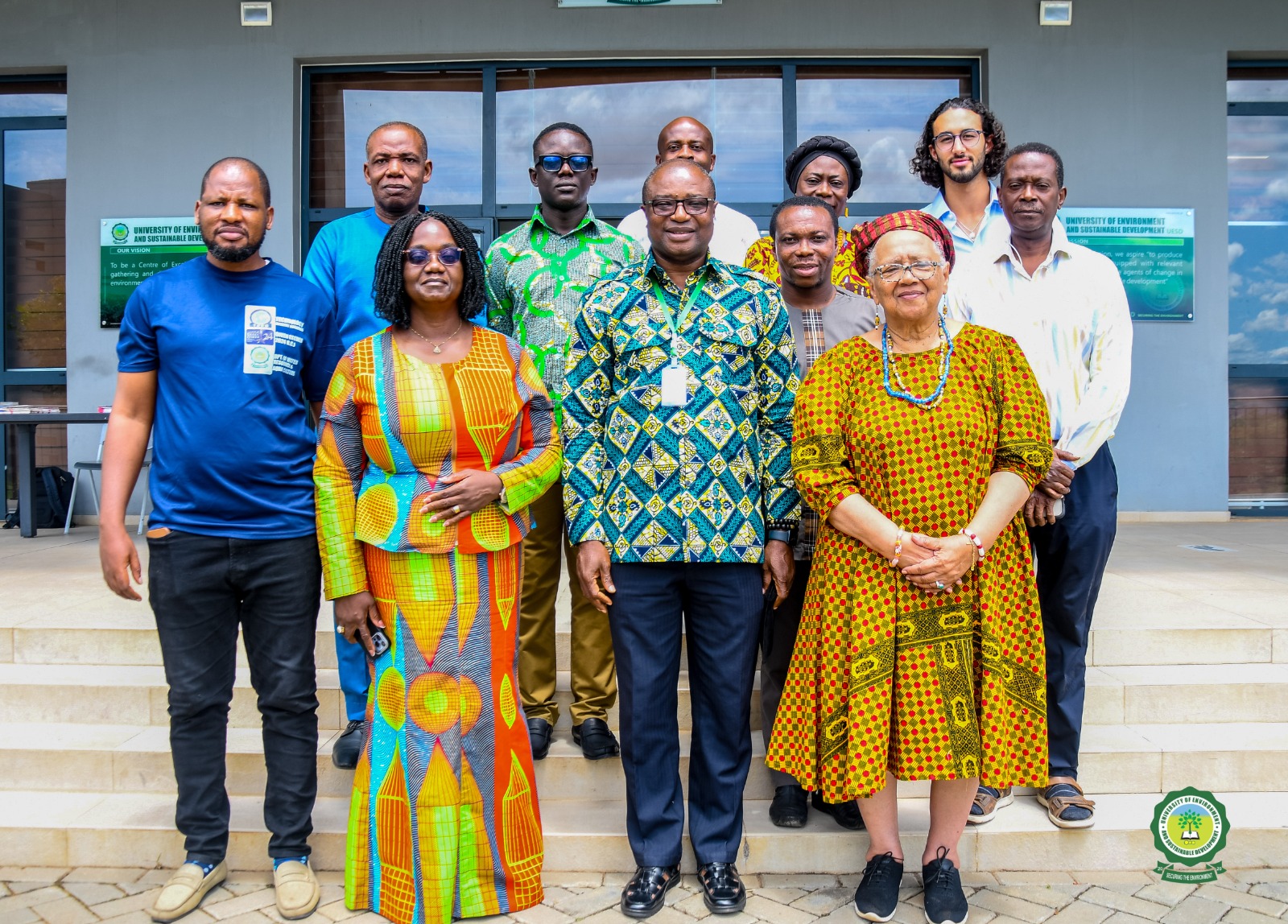The University of Environment and Sustainable Development (UESD) is set to play a leading national role in carbon credit research and innovation, following a strategic engagement with the Clean Commodities Exchange (CCE) and climate entrepreneur Mr. Adam Roeske. This was during a courtesy call to UESD by Mr. Adam Roeske, an Egyptian based in the USA who is spearheading a groundbreaking carbon-financed clean water project in northern Ghana He was accompanied by Queen Prof. Wakeelah Mardinez in charge of Sankofo Empowerment Outreach and Mr. Ren Geers, Head of Climate and Economic impact. They were received by the Vice-Chancellor, Prof Eric Nyarko-Sampson in the company of the Registrar, Mrs Mary Abena Agyepong and other senior members.
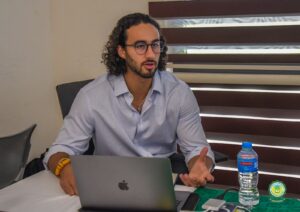
Mr. Roeske introduced a groundbreaking carbon-financed project that aims to deliver solar-purified drinking water to 500 thousand people in northern Ghana by 2030. The initiative is expected to generate more than 1.4 million carbon credits under the UN’s Article 6.2 framework—ensuring high transparency, traceability, and market value.
The project introduces decentralized solar water purification units, each capable of serving 75thousand–80 thousand people. The units pump water from surface sources like the White Volta and Naa Buure Dam to local kiosks within 1.5 km of homes, providing up to 400 thousand liters of clean water daily. Replacing firewood boiling for water treatment with this system not only improves health outcomes but also reduces greenhouse gas emissions.
He said, the initiative targets rural regions where over 26 million Ghanaians still lack access to clean water. The project will launch an open-source data library co-hosted by UESD and Ghana-Sankofa, supporting transparency and planning through shared datasets on groundwater, energy use, and population density.
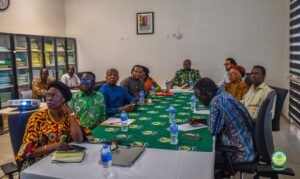
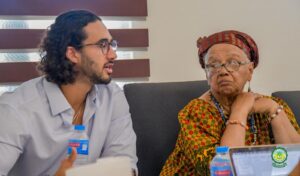
Vice-Chancellor, Prof. Eric Nyarko-Sampson confirmed the University’s support for the initiative, noting that its academic programmes in Water, Sanitation and Hygiene (WASH) and environmental sciences are uniquely positioned to lead Ghana’s carbon and water innovation.
He revealed plans to include carbon finance as a side event during UESD’s Biannual Environment Science and Technology Forum in August, leveraging ties with German NGO Friedrich Ebert Stiftung. research, monitoring hub for the project. The project life span is fifteen years
Queen Prof.Wakeelah Mardinez who has been made a queen mother in one of the communities in the Somanya township and a longstanding partner and advocate, reaffirmed her dedication to the project.
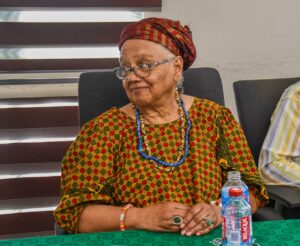
She emphasised UESD’s role in fostering innovation and retaining talent and called for investments in STEAM education, early learning, and vocational training, all to be funded by revenues from the project’s carbon credits.
Pilot locations such as Sagnarigu and Tamale are being evaluated for water stress and population need. Although close to urban centers, many of these communities have gone years without functioning pipelines. Beyond water access, the project envisions future expansion into: Solar microgrids, Clean cookstoves, Sustainable agriculture, clean cement and mining, Wastewater treatment and Agro-voltaics and bamboo cultivation.
As preparations continue for the September Water Summit and upcoming Carbon Workshop, stakeholders are aligning on data collection, community mobilization, and sustainable implementation.
By: Agnes Birago Adu Sarpong

